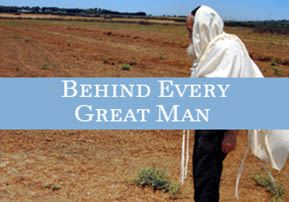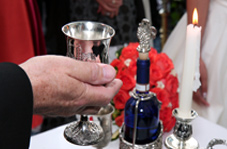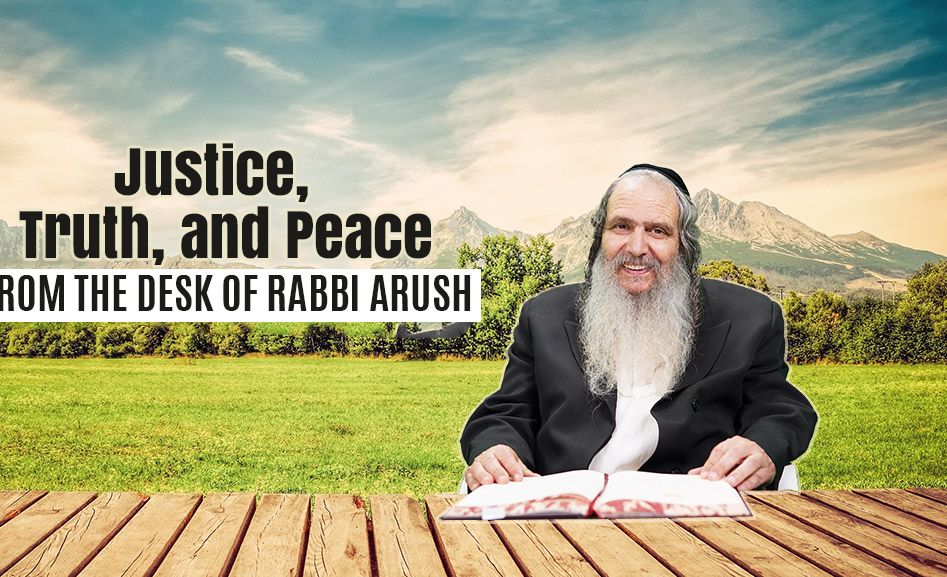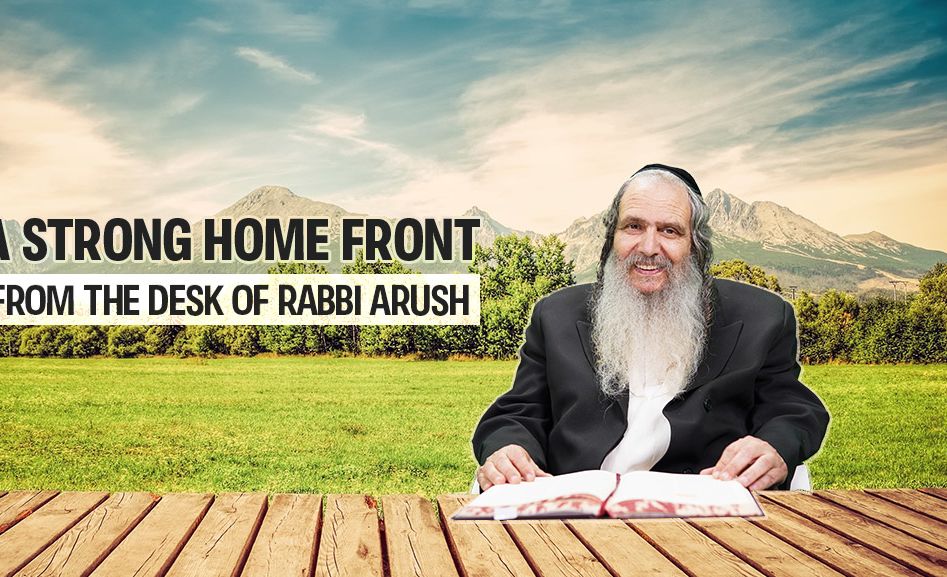
Behind Every Great Man
Too many women constantly berate and contradict their husbands. Do women want to be the catalyst for their mate’s downfall, triggering an endless, destructive cycle?

It is said that behind every great man there is a great woman. Throughout history we find this to be true and all the more so in Judaism. Contrary to popular belief, women are not subservient to men in the religious world. In fact, they are the foundation of the home and the cornerstone of future generations. Women do not follow behind men but rather they stand together side by side, each with his and her own mission to fulfill.
Just as men and women are different in many ways, so too are their responsibilities. In no way does that diminish their importance. Hashem, in His infinite wisdom, gave women absolution from any mitzvah (commandment) which is time sensitive. Since her primary obligation is to raise children and take care of the home, it would be next to impossible to be expected to participate in all the daily rituals which have time restrictions. So you may be thinking:
“Primary obligation? Women contribute to more than just the home and family.”
“Women work outside in the world and are not bound by their aprons to cook and clean and fold the laundry.”
 “Women are equal.”
“Women are equal.”
Well, it may not be a popular viewpoint but women really were created to be the principal caregivers of their offspring and keepers of the home. Did G-d give men the apparatus to carry a child for nine months and feed them in their infancy? No, because the man’s place is not in the home as is the woman’s. This is so significant that the Jewishness of a child is determined by the mother rather than the father.
There is a beautiful explanation on this topic. It is not simply the fact that a woman gives birth to her children and the biological father can be in question. The reason is very deep and has to do with a woman’s spirituality, her soul. Rebbetzin Chana Bracha Siegelbaum, in A Mother’s Essence writes “Rabbeinu Bachaya on Bereishit 29:25 explains that the mother gives over her essence to her offspring.” “The Imrei Shefer compares the womb, to the mikvah, which has the capacity to convert a person to Judaism. He explains that the mother determines the spiritual genetics of the Jewish people because of the great impact the womb has on the unborn child.”
In addition, when a woman devotes a considerable amount of her energy to nurturing this tiny being, she fosters not only the child’s bodily needs but their spiritual requirements as well. Fathers also play a vital role in their offspring’s development by (hopefully) setting a holy example of how a husband and Jewish man should behave. But since men are not as spiritual as women by nature, there is a limit to what he can inspire within a growing neshama (soul). Yet with parents bonding together as one entity, endowed with Hashem’s embedded sparks – equally but differently – the new neshama has the utmost potential.
Throughout history, many righteous women have been pivotal in bringing about change and salvations. They were known for their kindness, wisdom and intuition and were respected accordingly. On Friday night when women light their Shabbat candles, they often add a prayer which asks G-d to bless their homes and families “in the merit of Sarah, Rivkah, Rachel and Leah, our mothers”. Later, when the husband returns from prayers at the synagogue, following the melodious and welcoming “Shalom Aleichem”, he sings a song praising his ‘woman of valor’, “Eishet Chayil”, consisting of Proverbs 31:10-31. We learn that the ‘woman’ mentioned is also an allegory for the Shechinah (Divine Presence), Shabbat and the soul. “The very fact that the Jewish woman was chosen as the vehicle used to describe such lofty spiritual manifestations is in itself a profound tribute to her.” (Artscroll Siddur, pg.358)
Since men’s rightful place is in the Shul (synagogue) or Beit Midrash (study hall) and they are required to fulfill their obligations with concentration and focus, it follows that they should not be distracted. When women are kept separate and out of men’s view, it is not because females are lesser than males, but to help them achieve their goals. Why then, should anyone feel hurt or degraded? Women should rejoice in the opportunity to bring holiness into the world through their own modesty and regard for others.
Neither man nor woman can be truly complete on their own. From the beginning of creation this was understood when the Creator of the world said “It is not good that man is alone; I shall make a helpmate opposite him.” (Bereshit [Genesis] 2:18). Rashi expands on this further by adding ‘If he is worthy, she will be a helpmate. If he is not worthy, she will be against him, to fight him. (Genesis Rabbah 17:3, Pirkei d’Rabbi Eliezer, chapter 12). Therefore, a man facing a difficult relationship should consider doing some introspection rather than blaming his wife.
In his shiur (lecture) on Torah Anytime entitled ‘The Correct Definition of Olam Habah’, Rabbi Zecharia Wallerstein mentioned the old quote with a humorous twist; “Behind every great man, there is a great woman telling him he’s not so great”. What was intended as a joke is, in fact, the sad reality. Too many women constantly berate and contradict their husbands. Do women truthfully want to be the catalyst for their mate’s downfall, triggering an endless, destructive cycle? Love and support will go a long way. Together with teshuva (repentance) and prayer, everyone has the ability to turn their lives around for the better. Women must realize that they have the capability to bring their men to greatness and achieve their united tikkun (soul correction) in harmony.
May our Father in Heaven assist each one of us to attain this noble aspiration!







Tell us what you think!
Thank you for your comment!
It will be published after approval by the Editor.